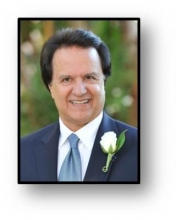EECS Seminar: Let Darwin and the Bees Help Improve your Designs - Nature-Inspired Optimization Techniques in Engineering

Distinguished Professor
Department of Electrical Engineering
University of California, Los Angeles
Abstract: Engineers are constantly challenged with the temptation to search for optimum solutions for complex engineering system designs. The ever-increasing advances in computational power have fueled this temptation. The well-known brute force design methodologies are systematically being replaced by the state-of-the-art Evolutionary Optimization (EO) techniques. In recent years, EO techniques are finding growing applications to the design of all kinds of systems with increasing complexity. Among various EO’s, nature-inspired techniques such as Genetic Algorithms (GA) and Particle Swarm Optimization (PSO) have attracted considerable attention. GA utilizes an optimization methodology that allows a global search of the cost surface via the mechanism of the statistical random processes dictated by the Darwinian evolutionary concept (adaptation, selection, survivability and mutation). PSO is a robust stochastic evolutionary computation technique based on the movement and intelligence of swarms of bees looking for the most fertile feeding location by applying their cognitive and social knowledge. This presentation will focus on: (a) an engineering introduction to GA and PSO by describing in a novel fashion the underlying concepts and recent advances for those who have used these techniques and for those who have not had any experiences in these areas, (b) demonstration of potential applications of GAs and PSOs to a variety of electromagnetic and antenna designs including space antennas, medical antennas, wireless antennas, metamaterials and nano structures, etc., and (c) assessment of the advantages and the limitations of these techniques.
Biography: Yahya Rahmat-Samii is a Distinguished Professor, holder of the Northrop-Grumman Chair in electromagnetics, member of the US National Academy of Engineering (NAE), winner of the 2011 IEEE Electromagnetics Field Award and the former chairman of the Electrical Engineering Department at the University of California, Los Angeles (UCLA). Before joining UCLA, he was a senior research scientist at Caltech/NASA's Jet Propulsion Laboratory. Rahmat-Samii was the 1995 president of the IEEE Antennas and Propagation Society and 2009-2011 president of the United States National Committee (USNC) of the International Union of Radio Science (URSI). He has also served as an IEEE Distinguished Lecturer presenting lectures internationally. Rahmat-Samii is a Fellow of the IEEE, AMTA and ACES. He has authored and co-authored over 1000 technical journal articles and conference papers and has written over 35 book chapters and five books. Rahmat-Samii has received numerous awards, including the 1992 and 1995 Wheeler Best Application Prize Paper Award for his papers published in the IEEE Antennas and Propagation Transactions, 1999 University of Illinois ECE Distinguished Alumni Award, the IEEE Third Millennium Medal, AMTA’2000 Distinguished Achievement Award, 2001 recipient of an Honorary Doctorate Cassa from the University of Santiago de Compostela, Spain, 2001 Foreign Membership of the Royal Flemish Academy of Belgium for Science and the Arts, 2002 Technical Excellence Award from JPL, 2005 URSI Booker Gold Medal, 2007 Chen-To Tai Distinguished Educator Award of the IEEE AP-S, 2009 IEEE AP-S Distinguished Achievement Award, 2010 UCLA School of Engineering Lockheed Martin Excellence in Teaching Award, 2011 UCLA Distinguished Teaching Award, 2012 elected fellow of the Applied Computational Electromagnetics Society (ACES), 2015 Distinguished Engineering Achievement Awards of the Engineers’ Council and 2015 NASA’s Group Achievement Award. His research contributions cover diverse areas of modern electromagnetics and antennas, spanning from small medical antennas to large space-deployable antennas.Rahmat-Samii is the designer of the IEEE AP-S logo which is displayed on all IEEE AP-S publications.
Share
Upcoming Events
-
EECS 294 Seminar: Programming Light Diffraction for Information Processing and Computational Imaging
-
MAE 298 SEMINAR: Stretchable Electronics for Soft Biological and Robotic Systems
-
CBE Distinguished Lecture/CBE 298 Seminar: Computational Design of Peptides as Detectors, Sensors and Drugs
-
MSE 298 Seminar: Molecular Modeling in the Age of AI - From Energy Materials to Device Simulations
-
CBE 298 Seminar: Metal Electrodeposition for Modern Mineral Refining
